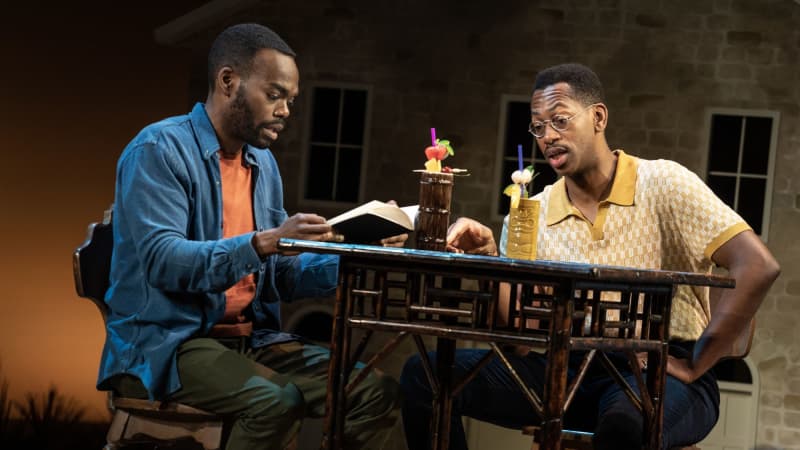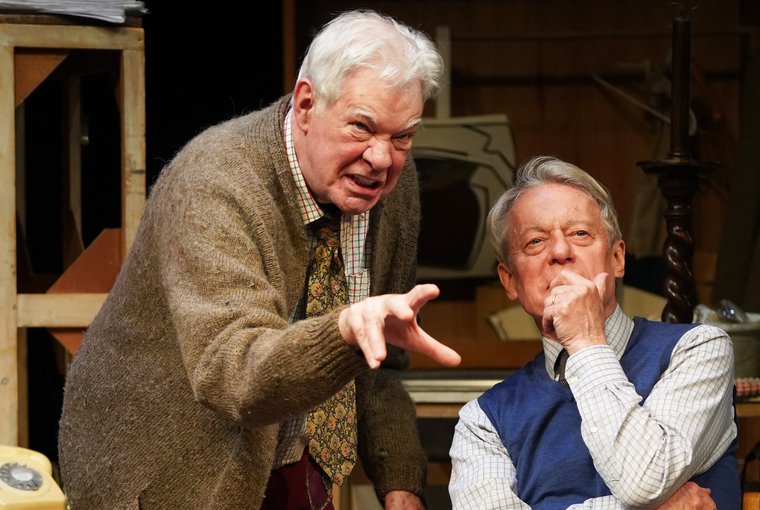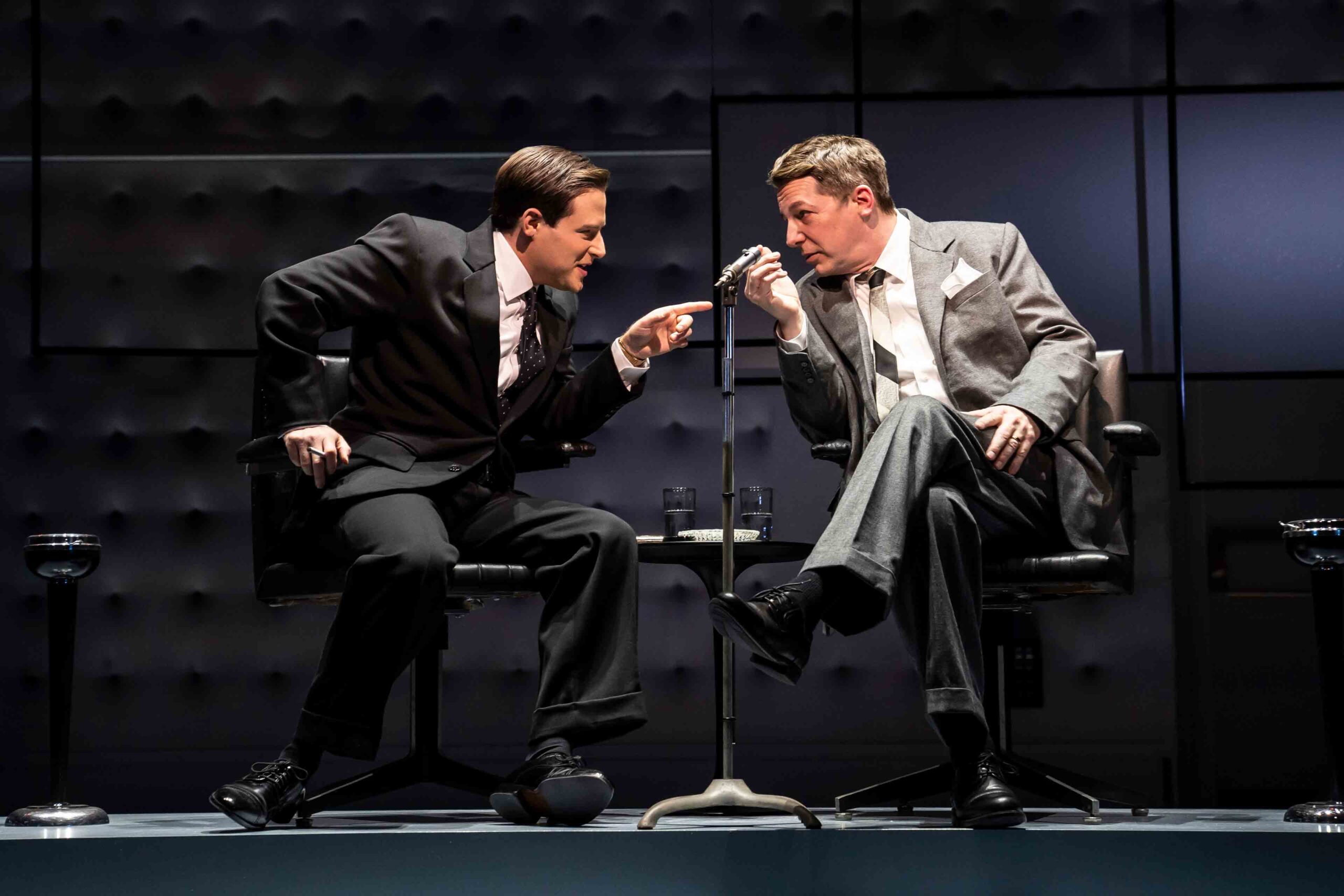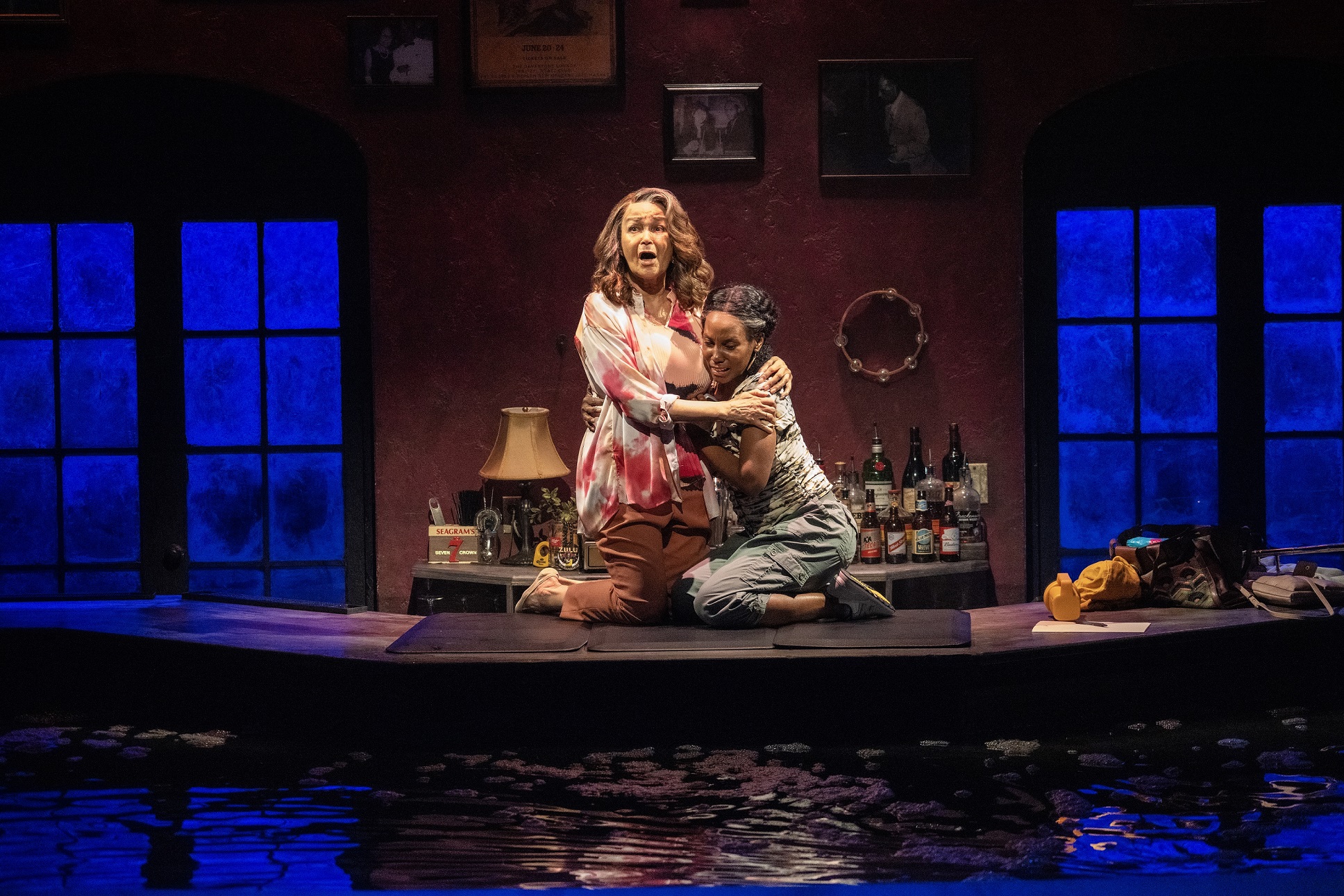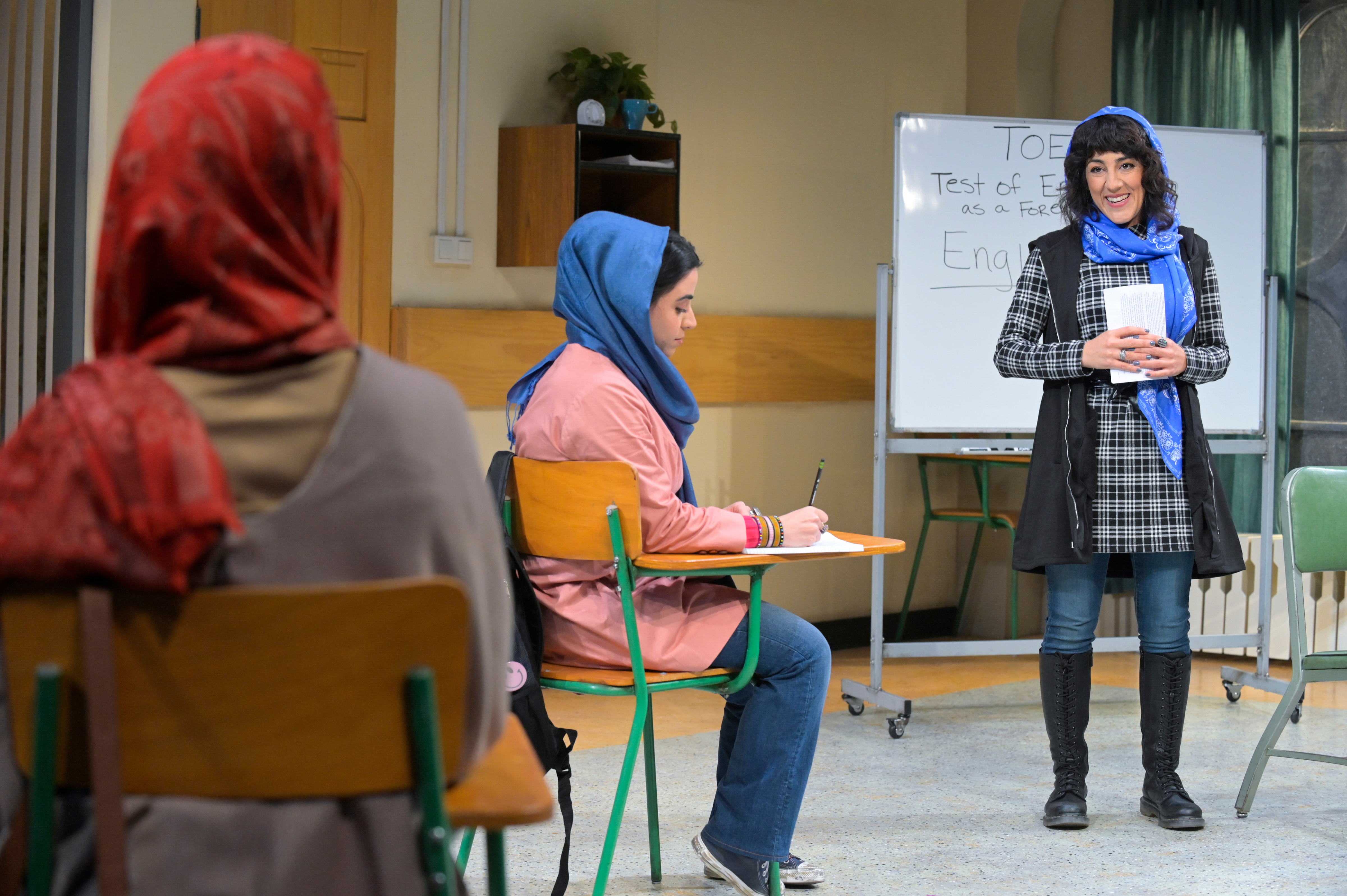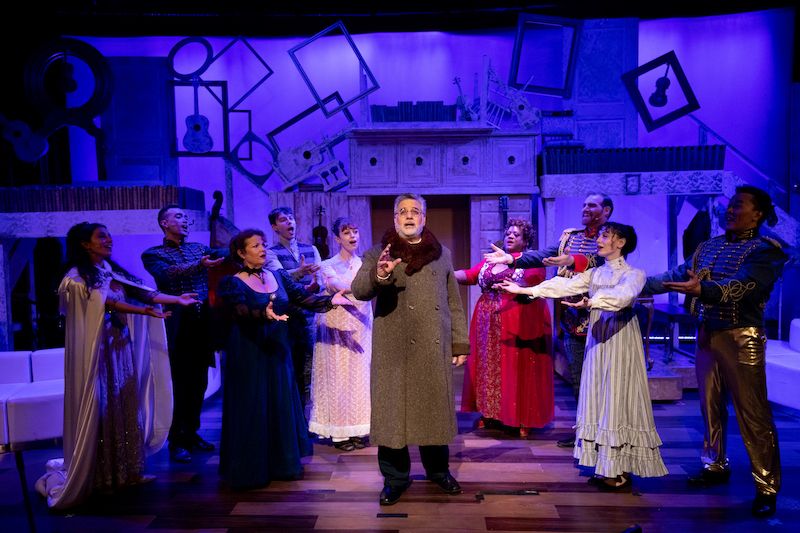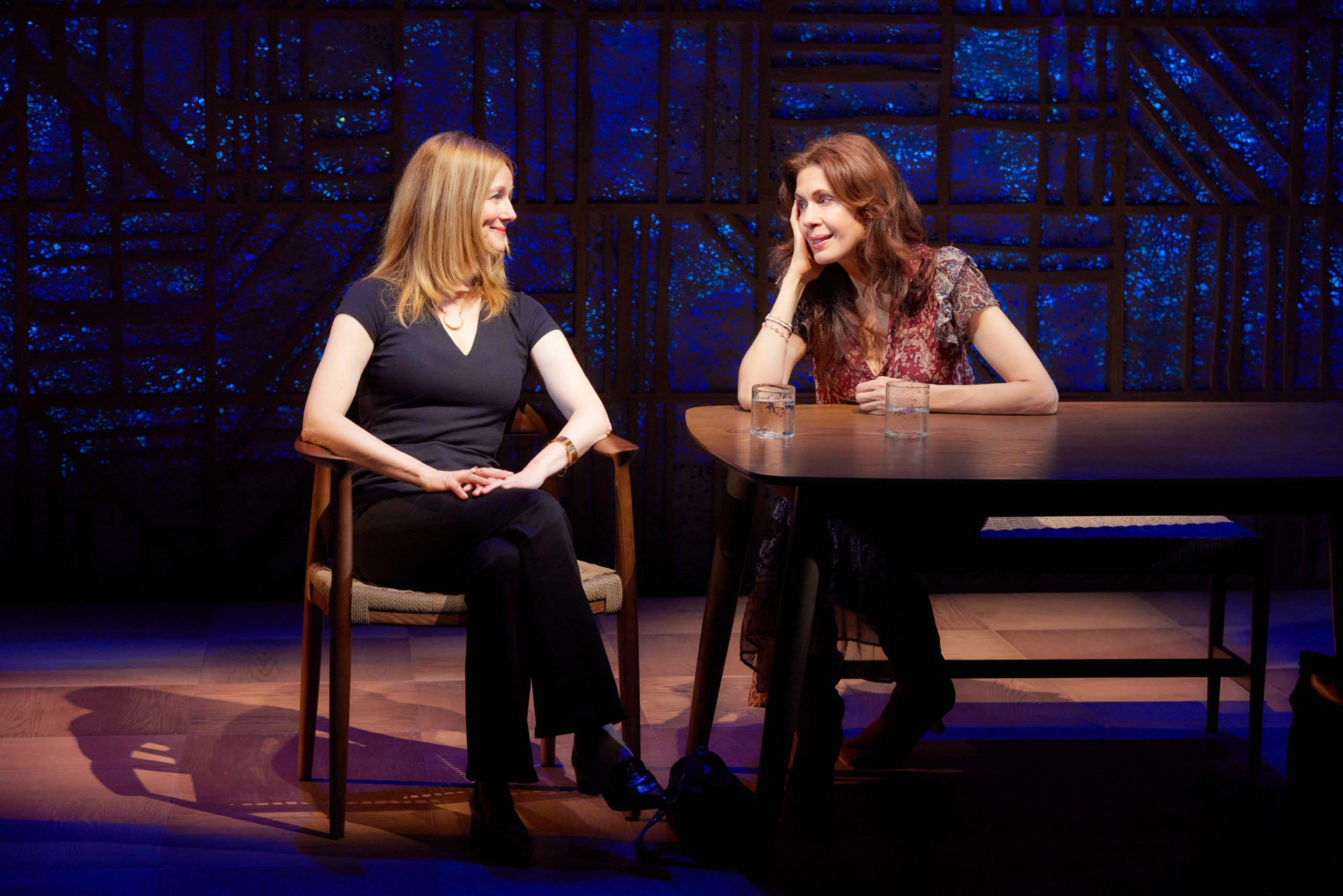 |
| MTC production photo by Jeremy Daniel |
This show has gotten a fair amount of buzz from critics and audiences, in part because (hey, it's Broadway) it has star power (Laura Linney is half the cast). I didn't know much about it, but we chose to go because of all the buzz. Also, it's written by David Auburn, whose Pulitzer-winning play Proof is a favorite of mine. So we give it a chance.
The Play
Two women met sort of by chance in the summer of 1976. Diana, an erudite artist, college instructor, and single mother, and Alice, a hippie married to a graduate student, meet because of their children. Both mothers are part of a babysitting co-operative (devised by Alice's economist husband; this is a much bigger plot point than it ought to be), and though they ostensibly have little in common, they come to spend a lot of time together because their daughters become friends.
The play takes the form of reminiscences by both women, who are initially sitting at opposite ends of a large table. It's like they're looking back over coffee or something, but not quite, and frankly they don't interact all that much. It's generally one woman telling a story, then the other amending, adding, or contradicting. Ultimately, neither character serves as a very reliable narrator.
What we basically have is a story about two women, neither of whom is terribly happy with her lot in life in 1976, sharing some time together, then drifting apart. The do cross paths again later, but not in the way we see initially on stage, so the chronology of the whole thing is a bit unclear.
The Production
Under the direction of Daniel Sullivan, the production is pretty clean and simple: two women sitting at a table, telling stories of their shared past. The women seem to be doing this in the early 2000s, so roughly 25 years after the initial meeting and friendship. Unfortunately, neither actor seems particularly into their role. Though the show has been running for a while, each of the actors stumbled on some of their lines, and both sort of declaimed their lines in an odd style rather than just speaking as characters. Their respective affectations didn't really seem appropriate, and just became annoying.
Linney portrays the aloof, unhappy artist Diana, who seems not terribly pleased with anything in her life, hiding behind an arrogant intellectual facade that masks a lack of real achievements. Her obvious attraction to Alice goes nowhere, and apparently mars the ensuing years. Unfortunately, a story of her inability to finish anything (her degree, her art, her relationship with Alice) isn't a very satisfying story for us, either.
And Alice (Jessica Hecht) seems untethered to anything, whether because she's a dope-smoking hippie kid or just a ditzy flake. She seems to exist mostly as a foil for Diana, but doesn't offer much. And Hecht does some rather bizarre things with her voice that make little sense in the context of the play. I have no clue what that was meant to mean.
The Bottom Line
It was kind of dull and just OK. Not a satisfying story, no great theatrical moments, just brilliant performances. Just a rather uninteresting story, which seemed like a waste of some very experienced actors. It's not awful, but just not very interesting, either. So I can't say I'd recommend it. It runs for a while longer at the Samuel J. Friedman Theatre, but really, there are much better shows out there right now. Don't bother.


